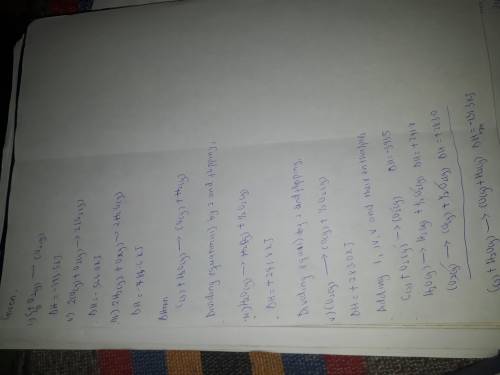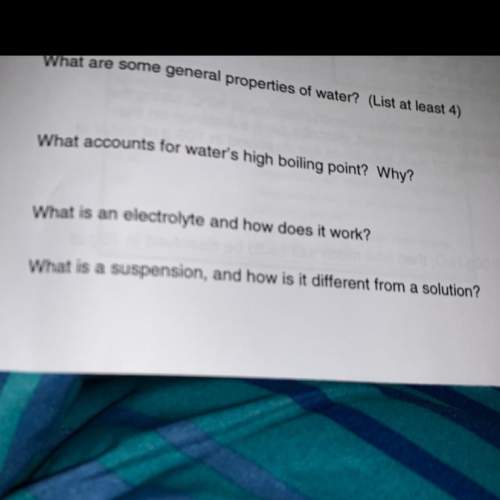
Chemistry, 22.02.2020 01:47 tinasidell1972
Calculate ΔHrxn for the following reaction: C(s) + H2O(g) --> CO(g) + H2(g) Use the following reactions and given ΔH values: C (s) + O2 (g) → CO2 (g), ΔH = -393.5 kJ 2 CO (g) + O2 (g) → 2 CO2 (g), ΔH= -566.0 kJ 2 H2 (g) + O2 (g) → 2 H2O (g), ΔH= -483.6 kJ

Answers: 3


Other questions on the subject: Chemistry

Chemistry, 22.06.2019 03:30, krharris
Melting and boiling are endothermic processes. this means that these processes absorb energy from their surroundings in order to occur. use this information and the data you collected in the phase change gizmo to describe what happens to the temperature of water when you boil it, then explain why this result occurs.
Answers: 2

Chemistry, 22.06.2019 05:20, jtingley0502
Temperature is _related to the average kinetic energy of a gas. inversely directly not disproportionally
Answers: 1


Chemistry, 22.06.2019 06:40, alyons60
Which statement correctly describes metallic bonds? a. they form when certain atoms lose electrons and other atoms gain electrons. b. they involve an attraction between anions and cations. they always involvpoth a metal and a nonmetal. d. they can only form between atoms of the same element. e. they form because electrons can move freely between atoms.
Answers: 3
You know the right answer?
Calculate ΔHrxn for the following reaction: C(s) + H2O(g) --> CO(g) + H2(g) Use the following rea...
Questions in other subjects:


Biology, 07.12.2020 06:00

Mathematics, 07.12.2020 06:00

History, 07.12.2020 06:00



Mathematics, 07.12.2020 06:00

Mathematics, 07.12.2020 06:00

History, 07.12.2020 06:00





